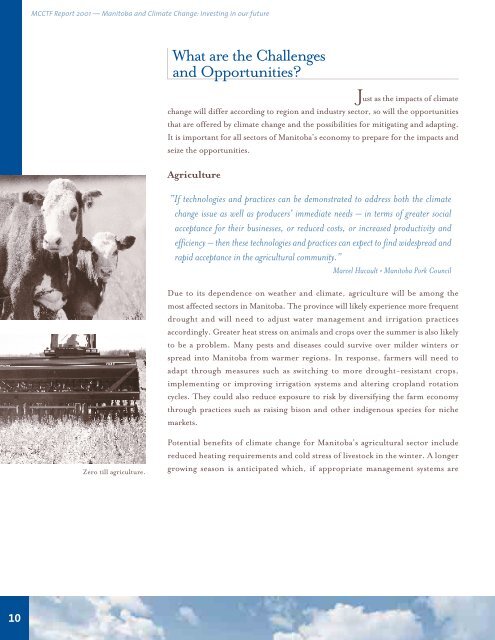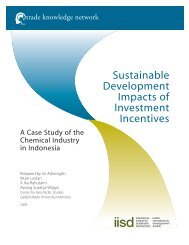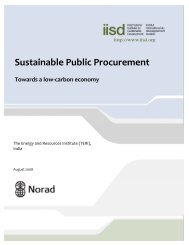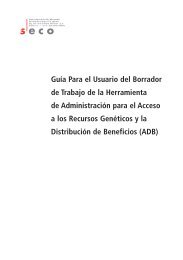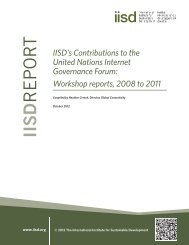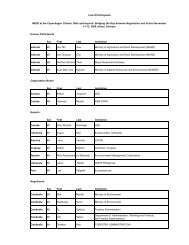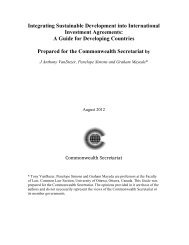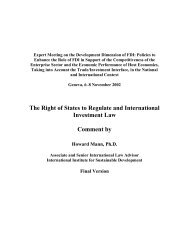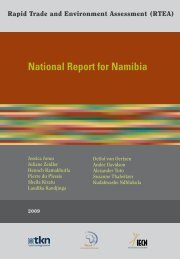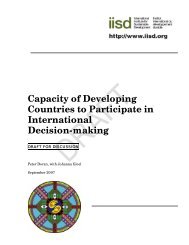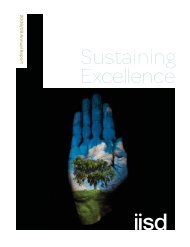Manitoba Climate Change Task Force - International Institute for ...
Manitoba Climate Change Task Force - International Institute for ...
Manitoba Climate Change Task Force - International Institute for ...
Create successful ePaper yourself
Turn your PDF publications into a flip-book with our unique Google optimized e-Paper software.
10<br />
MCCTF Report 2001 — <strong>Manitoba</strong> and <strong>Climate</strong> <strong>Change</strong>: Investing in our future<br />
Zero till agriculture.<br />
What are the Challenges<br />
and Opportunities?<br />
Just as the impacts of climate<br />
change will differ according to region and industry sector, so will the opportunities<br />
that are offered by climate change and the possibilities <strong>for</strong> mitigating and adapting.<br />
It is important <strong>for</strong> all sectors of <strong>Manitoba</strong>’s economy to prepare <strong>for</strong> the impacts and<br />
seize the opportunities.<br />
Agriculture<br />
“If technologies and practices can be demonstrated to address both the climate<br />
change issue as well as producers’ immediate needs – in terms of greater social<br />
acceptance <strong>for</strong> their businesses, or reduced costs, or increased productivity and<br />
efficiency – then these technologies and practices can expect to find widespread and<br />
rapid acceptance in the agricultural community.”<br />
Marcel Hacault • <strong>Manitoba</strong> Pork Council<br />
Due to its dependence on weather and climate, agriculture will be among the<br />
most affected sectors in <strong>Manitoba</strong>. The province will likely experience more frequent<br />
drought and will need to adjust water management and irrigation practices<br />
accordingly. Greater heat stress on animals and crops over the summer is also likely<br />
to be a problem. Many pests and diseases could survive over milder winters or<br />
spread into <strong>Manitoba</strong> from warmer regions. In response, farmers will need to<br />
adapt through measures such as switching to more drought-resistant crops,<br />
implementing or improving irrigation systems and altering cropland rotation<br />
cycles. They could also reduce exposure to risk by diversifying the farm economy<br />
through practices such as raising bison and other indigenous species <strong>for</strong> niche<br />
markets.<br />
Potential benefits of climate change <strong>for</strong> <strong>Manitoba</strong>’s agricultural sector include<br />
reduced heating requirements and cold stress of livestock in the winter. A longer<br />
growing season is anticipated which, if appropriate management systems are


